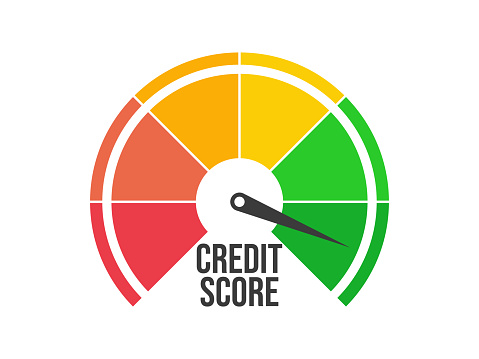When someone asks you to cosign a loan, it’s not uncommon to think what does that even mean?
Here’s your answer! Cosigning a loan means you are agreeing to take responsibility for the borrower paying back the loan if they fail to do so on their own.
Although this might seem like an easy way to help someone out, there are some major risks involved in cosigning a loan that you should know about before giving your permission.
You’re responsible for the debt if the borrower can’t pay
A cosigner can be an important part of qualifying for certain loans, as they often serve as an additional means of securing financing.

However, it’s important to understand that this person is equally liable for the debt, meaning they are responsible if the borrower cannot pay.
If things go south and the borrower defaults on their loan obligation, the creditor will come after both parties in order to recoup their losses.
On top of that, there’s also the matter of maintaining your credit score by being current with payments.
Cosigners might be tempted to let debts slide in an effort to help out friends or family members who have fallen on hard times.
But this could end up having dire consequences down the line when it comes time for them to take out loans or get approved for new credit cards.
Cosigning a loan should never be undertaken without careful consideration.
Before taking any such steps, research the consequences of not meeting one’s obligations under the agreement.
Seek legal counsel to make sure you fully understand all terms and conditions before signing anything.
Finally, talk over any potential ramifications with those close to you before agreeing to act as a cosigner.
It could damage your credit score
Cosigning on a loan is risky because it could damage your credit score if the person defaults on their payments.
If you have good credit, it might be worth the risk to help out someone else in need.
However, if your credit score isn’t that great, then you’re better off not cosigning anything.
It’s also important to note that if you are planning on helping someone by cosigning a car loan or mortgage, they should promise to pay back the money and use their own vehicle or home as collateral.
Otherwise, you are risking losing your own property.
If the person does default on their payments, you’ll be held responsible for paying back all of the debt.
The best way to protect yourself against this type of situation is to make sure that whoever you’re cosigning for has good credit and a job with stable income.
You can also try getting them to agree to co-sign an agreement where they take responsibility for any losses incurred during the process if things don’t go well.
You could be sued if the borrower doesn’t pay
If the borrower doesn’t pay, the creditor can sue both the person who signed for the loan as well as the cosigner.
If that happens, then it is possible for them to take any or all of your money and property in order to satisfy their debt.
Plus, they may also be able to garnish your wages and seize certain assets.
Cosigners are personally liable for the entire amount owed if there is no repayment plan set up with the lender before lending starts.
That’s why it’s important to set up payments plans beforehand so you don’t lose everything in case things goes wrong.
While this will prevent you from being sued by the bank, it won’t protect you from having to repay the debt yourself.
Even though this means more work on your end, think about how much better off you’ll be financially when something goes wrong.
The best way to avoid being in this situation altogether is not to sign as a cosigner at all – but if you do want to help out someone in need, make sure they have an established payment plan first!
The borrower may not tell you if they can’t make payments
A borrower may not tell their cosigner if they can’t make their monthly payments.
This is because the borrower doesn’t want to hurt the relationship with the person that agreed to help them out.
When this happens, your credit score will be affected, and it will be very difficult for you to get any form of credit in the future.
It’s also possible for the other party to sell or give away collateral without telling you.
It’s important to stay on top of making sure the other party pays their bills, so that these issues don’t happen.
Make sure the bill has your name on it. You should also make sure that you have access to the account information and bank statements.
If an issue does arise, contact the lender immediately.
There are solutions like forbearance plans, which allow you to temporarily suspend payments without affecting your credit score.
You might consider taking legal action against the borrower who didn’t pay their debt as promised.
To do this, you’ll need to file for arbitration at the American Arbitration Association (AAA) within one year from when the dispute occurred.
The AAA will appoint an arbitrator and set up a hearing date. The arbitrator will then listen to both sides of the story before deciding how much money needs to be paid back, whether all fees should be waived, and whether there should be interest charges incurred on late fees.
You may not be able to get the money back that you cosigned for
If the borrower does not make their payments, the creditor will attempt to collect from the cosigner.
If the creditor is unable to collect from the borrower, they may garnish your wages or seize assets.
Cosigning for a loan might seem like it’s an easy way out of lending money, but there are many risks involved and it’s important that you understand them before deciding whether or not this is something that’s right for you.
Cosigning on a loan means that if the person borrowing money fails to pay back the debt, the lender can go after you for payment.
You may not be able to get the money back that you cosigned for: if the borrower doesn’t make their payments, then creditors will attempt to collect from both parties (borrower and co-signer).
Even if they’re successful in collecting from one party, they’ll still come after you for any amount remaining on the balance owed.
The bottom line is that by cosigning for someone else’s loan, you’re risking losing more than just the money you lent to them.
In fact, cosigning could put your property at risk if the debtor becomes delinquent on their repayments.
Remember these three words when considering if it makes sense to sign someone else up for a loan: expectation, risk, and clearly.
Expectations around loans should be clear so that everyone understands how much risk they are taking with each other.






